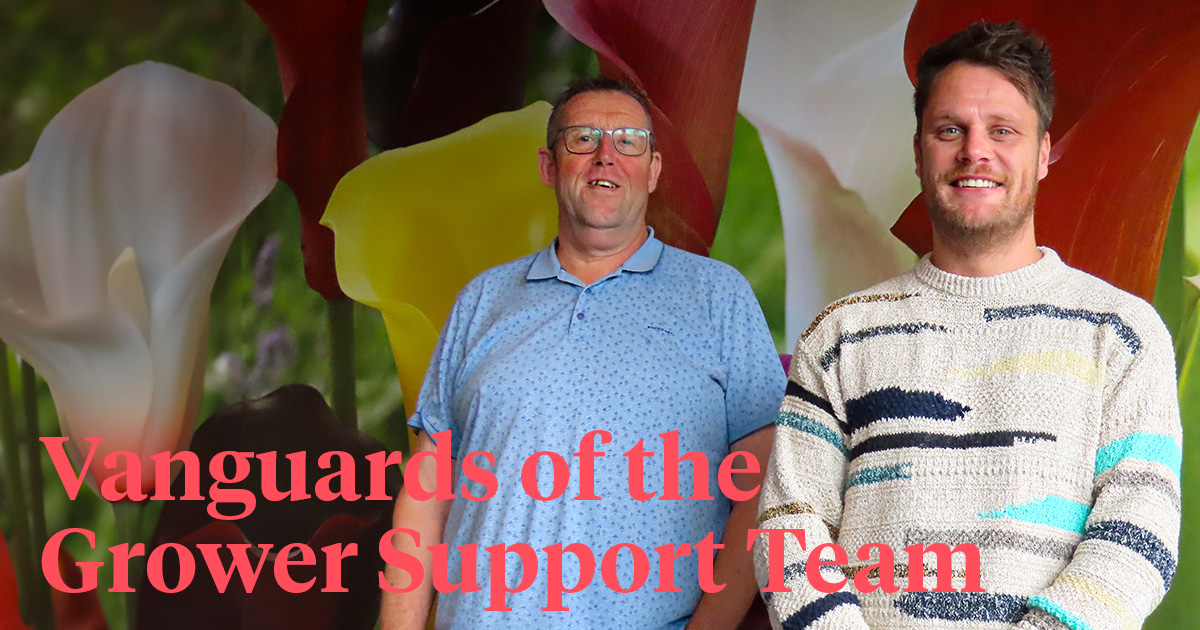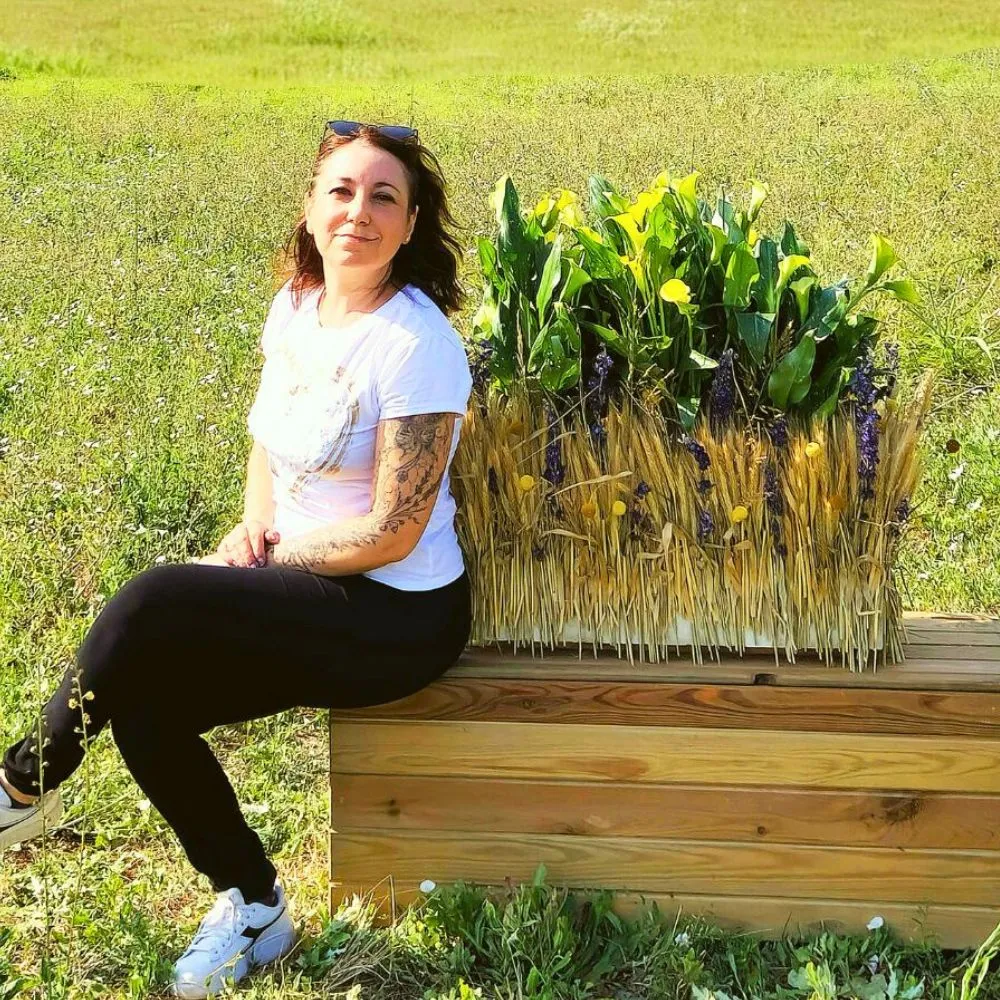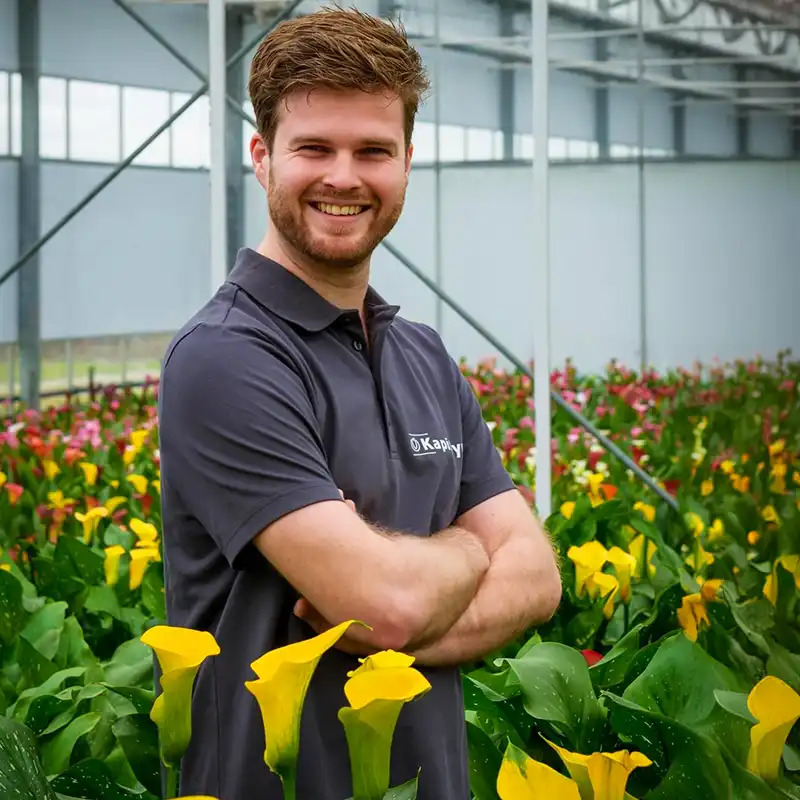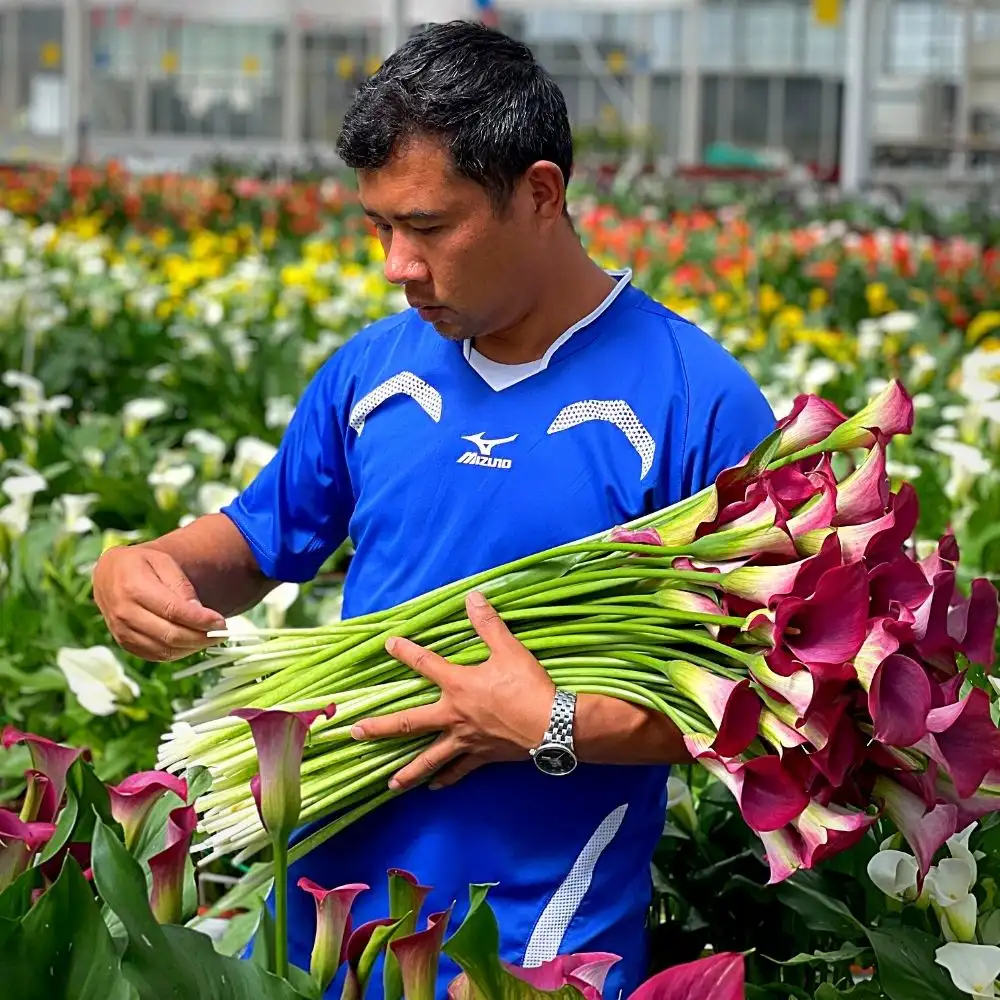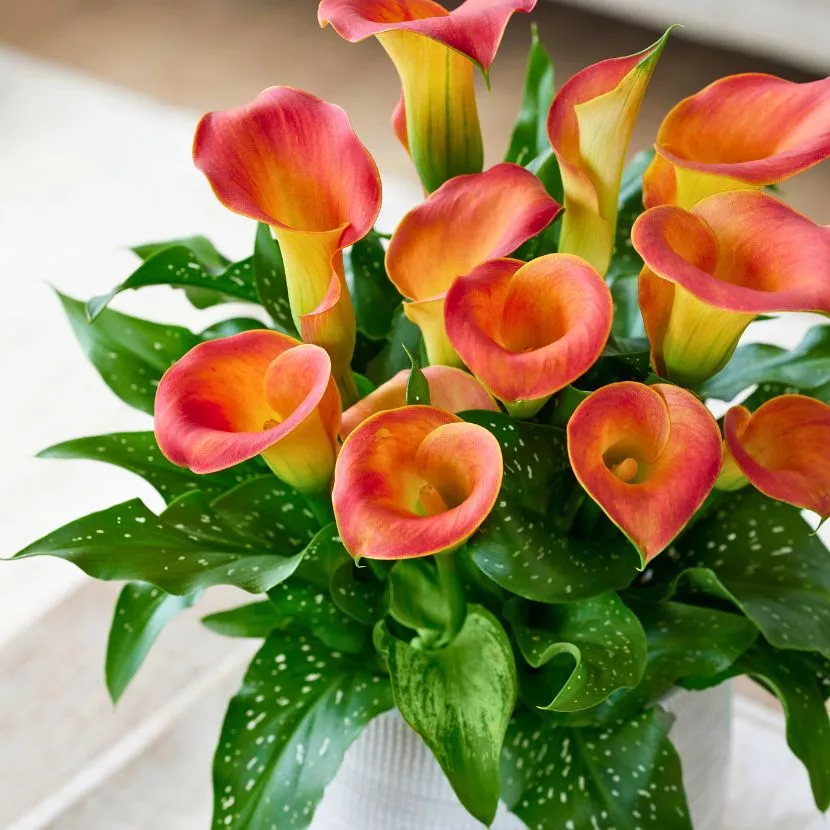Growing calla lilies is a difficult job, Kapiteyn knows that better than anyone. That is why this breeder of the famous Captain series searches every day for the right treatment method for each Captain Calla variety. Kapiteyn likes to share this knowledge with his customers. Their Grower Support team is intertwined with every department of this company so that they can provide optimal advice to calla growers all over the world.
The vanguards of the Grower Support team are Bo Schilder and Wim Kleine. They are the ones who travel the world to connect with customers. Their work is crucial because growers of calla plants greatly benefit from sound cultivation advice.
Kapiteyn's Grower Support Team
You could say that the Grower Support department runs like a common thread through the Kapiteyn company. It is interwoven with the vision of this breeder and present at all levels of the company. This runs via the knowledge base to the buyer and even to an external party that provides technical advice about plant nutrition and chemistry.

Bo Schilder has been working at Kapiteyn since 2016, in recent years as a salesperson for the Grower Support department.
Bo:
"The term 'salesperson' is a bit outdated. It's not really what we do. 'Account manager' comes closer. We don't just sell every bulb to everyone; there is a whole process before that. My work consists of more of supervising the cultivation of growers, who are Kapiteyn's customers. I answer customer questions and, together with the rest of the Grower Support team, develop good tailor-made advice. Every country, every market, every customer has different wishes."
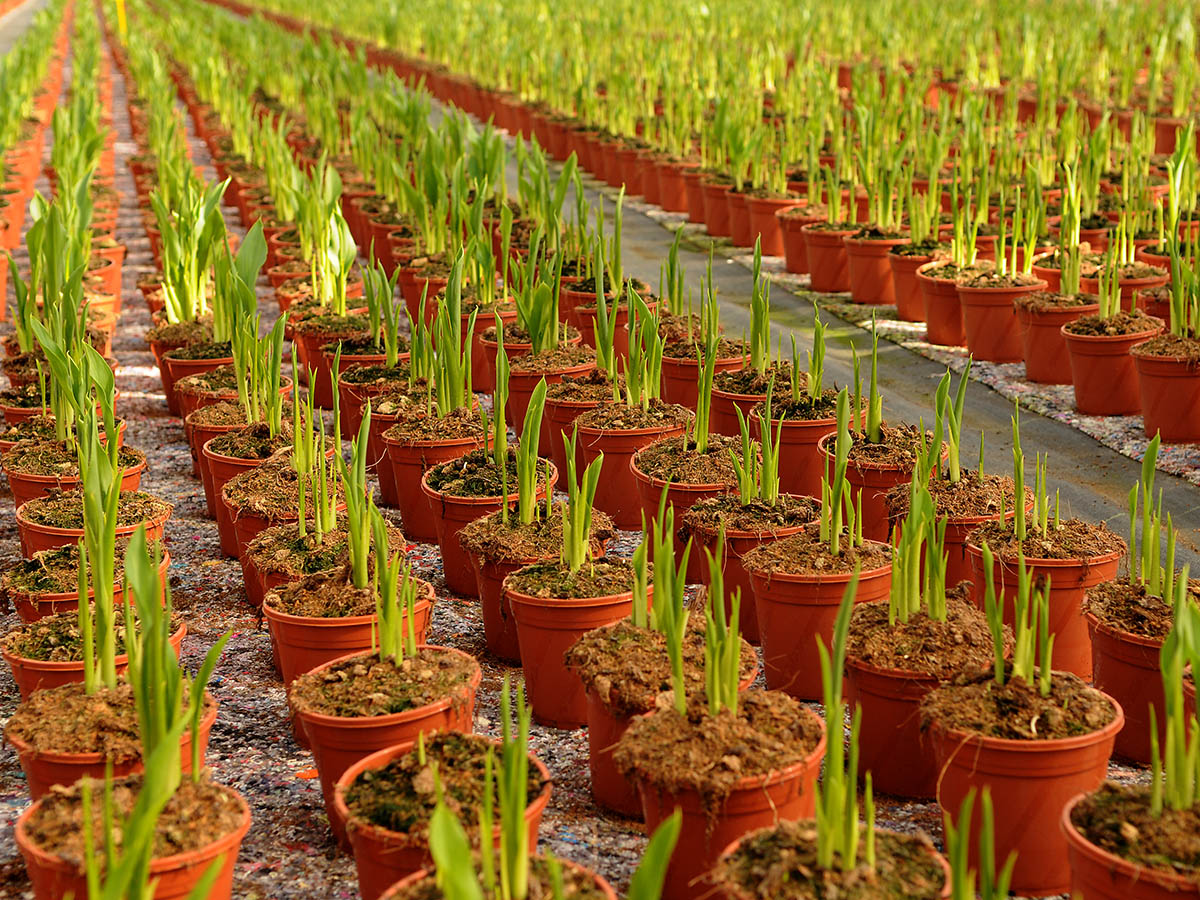
You wouldn't realize it if you have been working in the horticultural industry for a number of years, but calla is actually still a fairly new product for many people. Of course, everyone traditionally knows the tulip, lily, and rose. Although Kapiteyn has been around since 1898, the company has only been growing callas since 1992. It is precisely the relative unknown of the calla that appeals to Bo enormously.
Bo:
"You can really distinguish yourself with a product like calla. I really have the feeling that we are adding something to the market for potted plants and cut flowers. Of course, there are a number of growers who have now specialized in calla, but In the US, for example, you see that growers often grow many different products. Each product has its own cultivation specifications, such as the amount and timing of watering, light, and nutrition. There is still a lot of work for us to do."
Wim Kleine is an old hand in the business. He has worked in flower bulbs all his life; initially in lilies, but since 2011 for Kapiteyn in calla tubers.
Wim:
"There is still a lot to discover in the calla. It is an exclusive product, bred and traded by a very select group of companies. That is what I like about it."
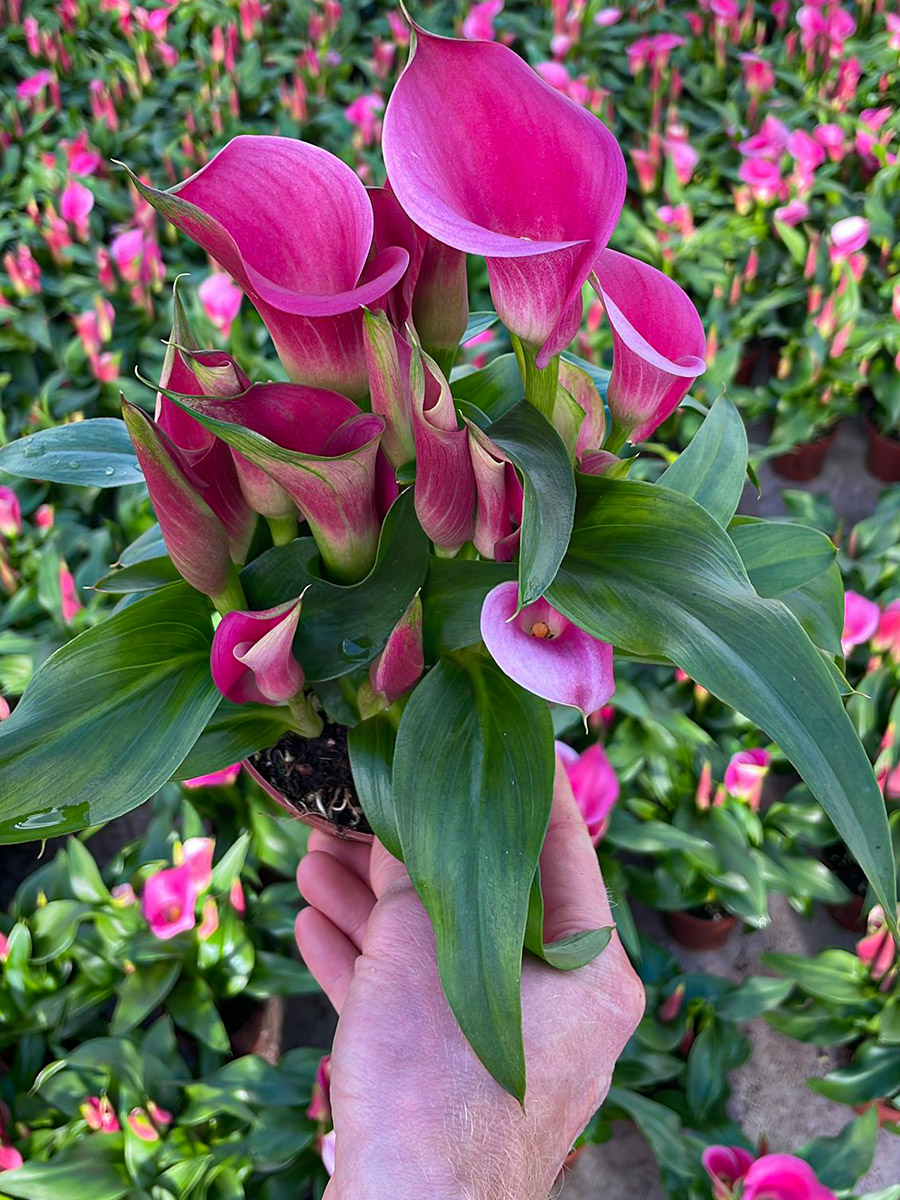
Wim has seen the company grow considerably during his time at Kapiteyn, both in surface, colors, and quality.
Wim:
"There have been many improvements in terms of quality, such as the condition of the flowers and susceptibility to diseases."
America is Kapiteyn's largest market; Captain Calla is also quite well known there. Wim indicates that the Captain series is already well known in the USA, mainly because of its quality and exclusivity. It is also a name with charisma that is easy to listen to.
Wim:
"If you compare the calla with, for example, the enormous number of lily bulbs that are sold, there is still a lot to be gained. But the calla plant is no longer a real niche product in America, it is becoming increasingly better known, popular, and therefore better sold. It is still exclusive, especially if you look at the number of forcers compared to other bulb products. What helps is that the quality of our callas has improved enormously in recent years, causing our market share to grow steadily."
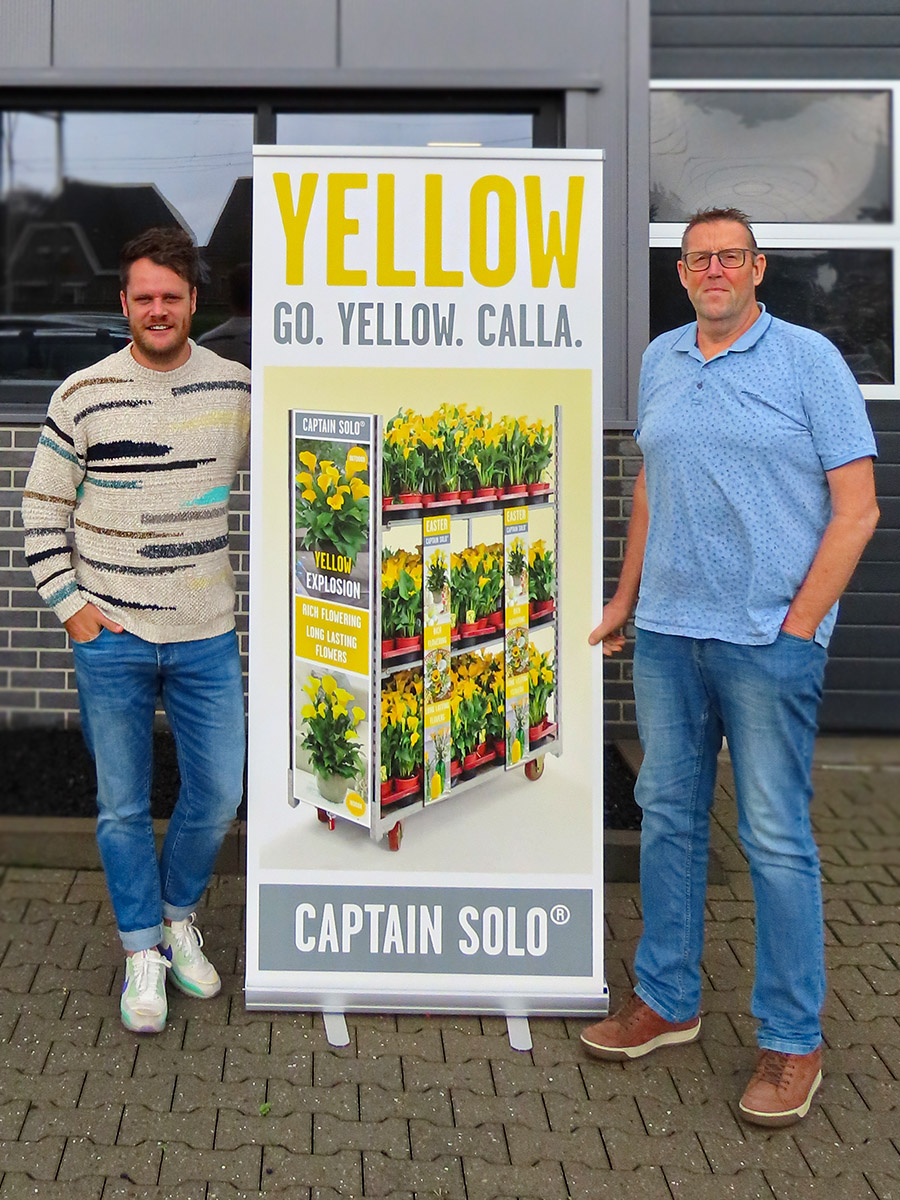
An Honest Advice
As a salesperson at Grower Support, you work primarily for the customer. Bo and Wim clearly indicate that there is absolutely no point in just selling calla tubers to a grower if it is not certain that that grower will get a return from this. By looking very critically at the needs - also of the grower's customer - Kapiteyn selects the most suitable varieties. It is not unusual, especially in the United States, for Kapiteyn to make a proposal to the grower's customer through their North America arm ThinkPlants so that the purchase of the tubers is also pre-sorted for sale. ThinkPlants also gives presentations on behalf of Kapiteyn at large chains such as Walmart, Lowe's, and The Home Depot, which record their purchases well in advance.
As soon as Kapiteyn's offer has been accepted, the right growers are appointed by the retailer. Wim Kleine then first consults with the tuber supplier; often this is Express Seed Company, which works closely with ThinkPlants. Ultimately, the grower is of course also involved, so that a thorough cultivation plan is drawn up.
Bo:
"We give a grower the certainty of a good end product, so that proposition for large sales channels works well. But what should also not be forgotten is the aftercare we provide to all growers who plant Captain varieties. It doesn't stop for us when the shipment of tubers has been sent. We regularly visit growers all over the world to monitor and - if the grower is open to it - to advise on all technical aspects and challenges he may encounter during cultivation. We make a cultivation plan together with the grower, in which we indicate per week for all 8 to 12 weeks of cultivation which steps the grower must take, including what the necessary amount of water is and when nutrition can begin."
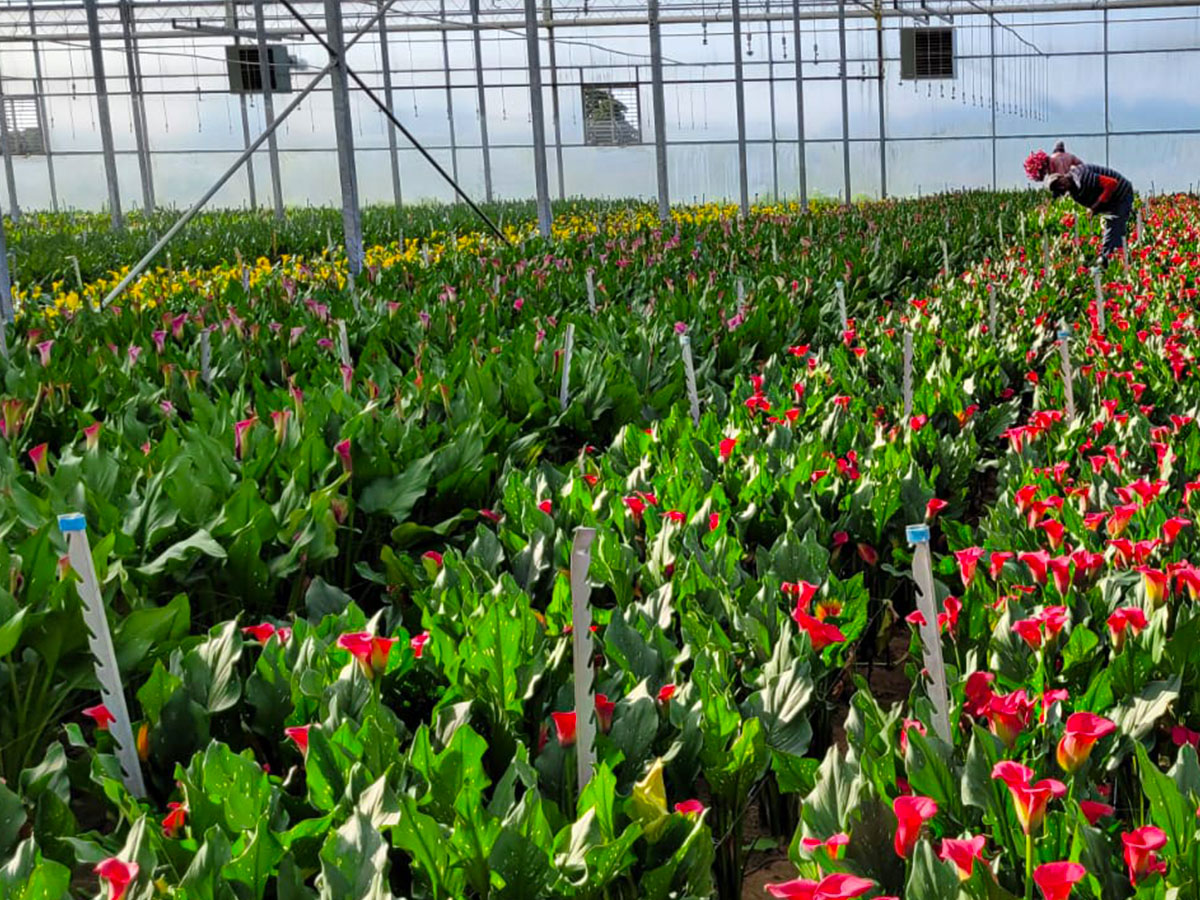
It will not surprise you that Kapiteyn continuously tests and improves all varieties itself. The Customer Support team learns everything that can help the grower to create ideal conditions to achieve optimal results. They do this not only by forcing them in their own test greenhouse and then growing the plants themselves but also by conducting research together with various institutions into crop improvement, disease prevention, and other developments.
Bo:
"Kapiteyn has a purchasing department that buys tubers from its Dutch tuber growers. These are always first checked by us and also by independent inspectors. They use a whole checklist, take a sample, and put it in warm conditions to see how active the sprout develops. The tuber is then given a grade between 1 (very poor) and 5 (very good). The very best of these are reliable enough and suitable to be supplied by us."
Tips From Kapiteyn for Growers
During their many visits to growers, there are a few common problems that stand out for Bo and Wim. Spoiler: These mainly concern watering.
Wim:
"I estimate that about 80% of the problems we encounter concern the amount and timing of watering the plants. In the initial stages - the first three weeks - a lot can go wrong. We especially notice this in growers who are not used to growing calla lilies and think they need the same amount and frequency as their other plants. It is not uncommon in America to grow two hundred or three hundred different crops in one greenhouse and water them with one irrigation system. But A calla has its own water needs. We advise you to keep those callas separate and to water them correctly."
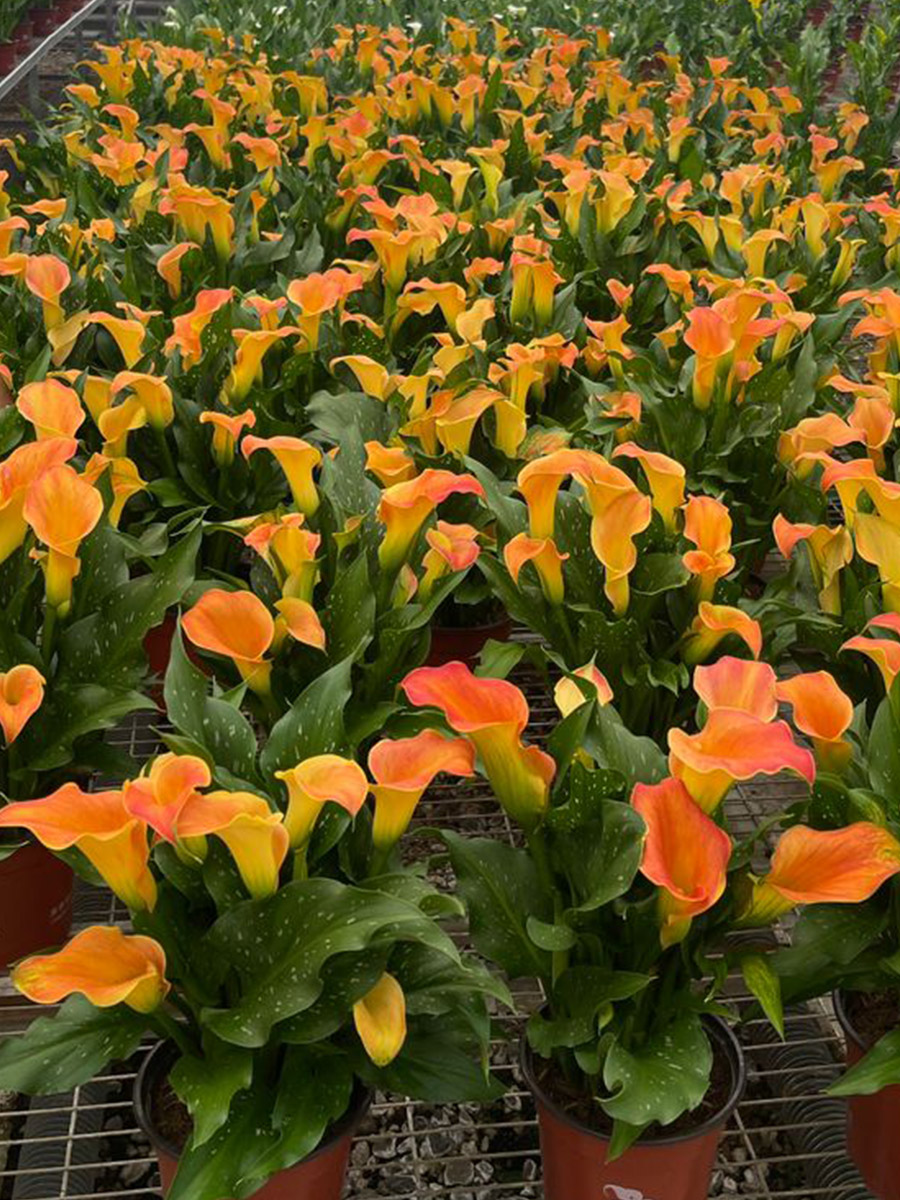
Other advice from Bo and Wim is to regularly take a plant out of the pot. Take a look at what the substrate looks like. And look at the roots, because if something is wrong with the plant, you will see it there first.
Bo:
"Often the crop still looks good, but if you look at the roots it turns out that this is not the case. This can then be adjusted. As soon as the crop itself does not look good anymore, it is too late. Often the watering is the reason, but it could also be due to the climate in the greenhouse, for example if it is too hot inside. I actually feel this immediately as soon as I enter a greenhouse. If I start sweating after a few seconds, it is it is really too hot there. Callas do not need that much heat, this is sometimes misjudged. If it is difficult to lower the temperature in the greenhouse in a warm outdoor climate, it is advisable not to water only once, but perhaps even up to four or five times a day."
Color Advice for Growers
Naturally, the Grower Support team kept its eyes and ears open when traveling around the world. Bo and Wim are no strangers to which colors are hot or not in every corner of the world. After all, part of their advice is to put the right variety (which includes the right color) with a grower.
Wim:
"We see a lot of differences in demand all over the world, also per country between callas as cut flowers and pot plants. Asiatic countries are fond of the white varieties as cut flower, but as a plant prefers yellow. No doubt that this has to do with the different uses for cut flowers (like bridal arrangements) and pot plants (seasonal home decoration).
In the USA the ratio is about 35% yellow, 30% pink, 20% orange, and then the other colors, such as white and black. There are of course certain peaks in colors during the seasons and around holidays, such as Easter, Halloween, and Christmas."
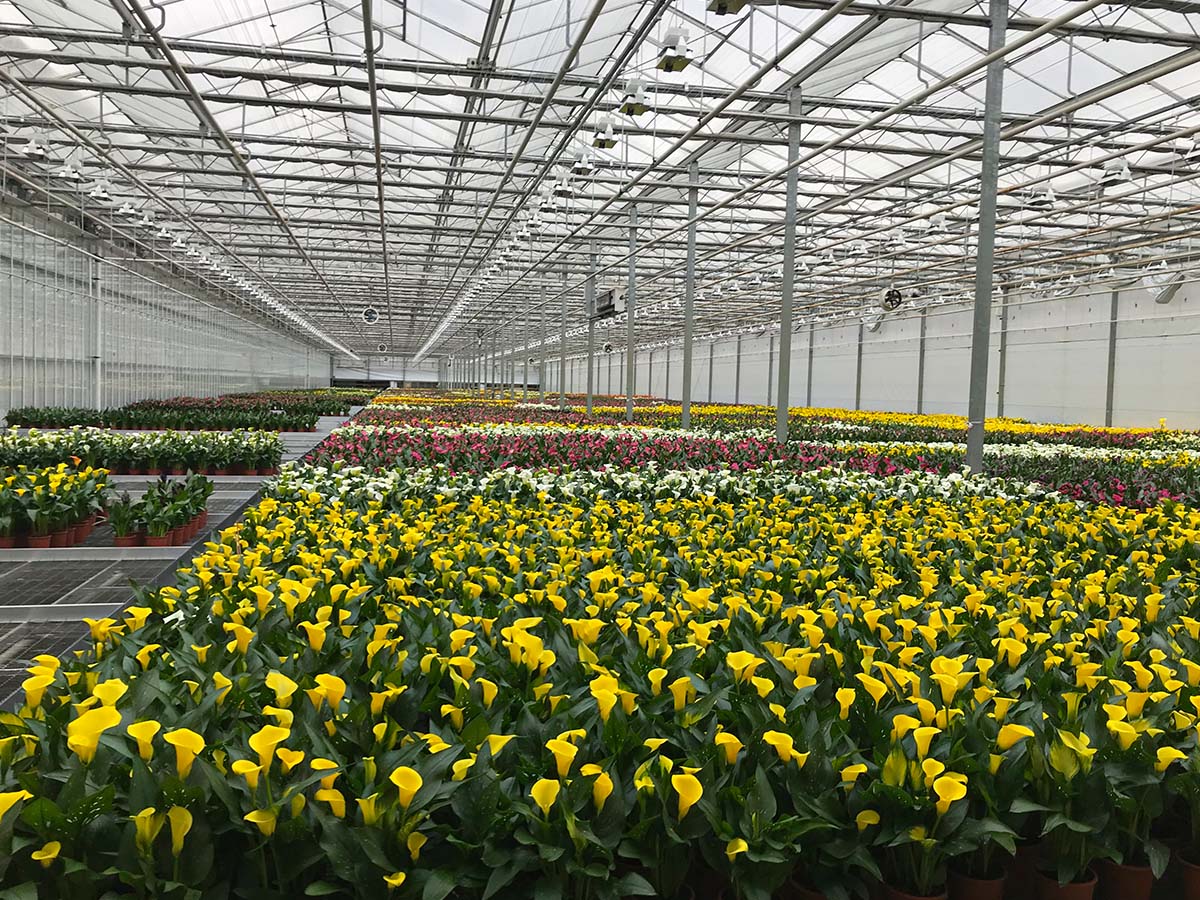
A Multi-Disciplined Team
The work of the Grower Support team, in which the role of Bo and Wim is highlighted here, is crucial for both Kapiteyn himself and for the growers of calla plants. As reported, these two men are responsible for contact with the growers. But it is clear that they rarely find themselves at a loss with such a multi-disciplined team behind them. Sound cultivation advice results in fewer losses and a better plant, so more value for the grower in the short and long term. It's that simple.
Kapiteyn sells its tubers in the USA through Express Seed Company, a sales organization that acts as an intermediary between the retailer, grower, and breeder.

